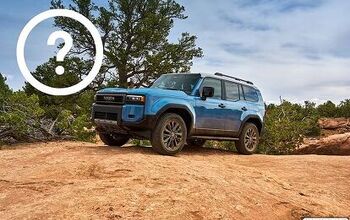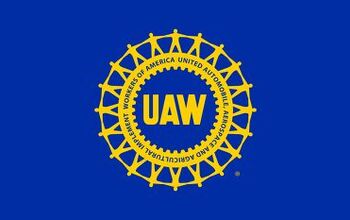Ghosn Desperately Wants All This Renault-Nissan Merger Talk to Stop

Renault-Nissan-Mitsubishi Alliance Chairman Carlos Ghosn is busy trying to convince shareholders of Nissan and Mitsubishi stock that Renault isn’t aiming to take over its Japanese partners. It’s proving to be no easy task.
While Ghosn has been clear of late that a merger isn’t in the works, he’s simultaneously adamant that the relationship between the companies must become “irreversible” before he retires from the industry in 2022.
Last month, Nissan CEO Hiroto Saikawa said he would prefer the two companies remain independent after Ghosn said there was no chance Renault would acquire Nissan and Mitsubishi outright. The Japanese want to maintain their independence, but there’s also a sense that executives are trying to tone down the merger rhetoric while deals are made behind closed doors. This hasn’t been confirmed, though speculation remains rampant and Ghosn has had to continue to deny the possibility of a buyout.
Addressing a crowd at the annual shareholders’ meetings for both Nissan and Mitsubishi, he stressed the importance of the alliance while simultaneously trying to disavow media reports that Renault is trying to come up with a purchasing deal. “Anybody who will ask Nissan and Mitsubishi to become wholly owned subsidiaries of Renault has zero chance of getting a result,” Ghosn told Japanese shareholders. “We have not done it for the last 19 years. We’re not going to change today.”
Renault holds a 43.4-percent stake in Nissan, despite the Japanese automaker being the larger company. After a kerfuffle with the French government (which has a 15-percent stake in Renault), the automaker agreed to give Nissan more autonomy.
Nissan, which owns 34 percent of Mitsubishi and 15 percent of Renault, has been pushing for voting rights. Due to the share breakdown in the Alliance, the company effectively has no voice when it comes time to cast its ballot. Naturally, it made a fuss over the issue.
During all of this, reports emerged that the French automaker is pursuing a merger on the sly. While Ghosn continues to squash those claims, he has repeatedly expressed the importance of a grand convergence — something that has yet to be clearly outlined.
“The last thing we want to do is by converging the three companies, do something where some people are demotivated, because they have the impression that they will be working for somebody else,” Ghosn said last last month. “This is a fundamental issue.”
Efforts to smooth things over with investors yielded mixed results. Media outlets continue you speculate on a looming buyout while some shareholders and Japanese employees remain unconvinced. There is also tension within Mitsubishi since Nissan took a controlling share in 2016. According to Automotive News, one pro-Mitsubishi investor accused Nissan of taking advantage of the automaker in a weak moment.
“Nissan is taking over Mitsubishi Motors,” the investor said. “I’m frustrated … What’s the benefit of being under the umbrella of Nissan?”
Ghosn said that combining sales puts the Alliance on par with the likes of Volkswagen and Toyota, noting that all companies benefit from shared innovation and cooperative production. He also referenced the DaimlerChrysler-Mitsubishi alliance as an example of what not to do.
“We do not believe that companies where you have one company dominating the others is sustainable. In our industry, it doesn’t work,” Ghosn said. “In the cemetery of carmakers, you have plenty of companies which collapsed because they forgot this very simple fact.”
Ghosn seems to genuinely believe that the continued success of all three companies hinges on cooperation. While that sounds like thinly veiled merger talk, it might not be. Ghosn’s vision may include a future where the brands are dependent upon one another without necessitating a buyout. Just how he intends to accomplish that irreversible partnership without one is unclear.
[Image: Nissan]

A staunch consumer advocate tracking industry trends and regulation. Before joining TTAC, Matt spent a decade working for marketing and research firms based in NYC. Clients included several of the world’s largest automakers, global tire brands, and aftermarket part suppliers. Dissatisfied with the corporate world and resentful of having to wear suits everyday, he pivoted to writing about cars. Since then, that man has become an ardent supporter of the right-to-repair movement, been interviewed on the auto industry by national radio broadcasts, driven more rental cars than anyone ever should, participated in amateur rallying events, and received the requisite minimum training as sanctioned by the SCCA. Handy with a wrench, Matt grew up surrounded by Detroit auto workers and managed to get a pizza delivery job before he was legally eligible. He later found himself driving box trucks through Manhattan, guaranteeing future sympathy for actual truckers. He continues to conduct research pertaining to the automotive sector as an independent contractor and has since moved back to his native Michigan, closer to where the cars are born. A contrarian, Matt claims to prefer understeer — stating that front and all-wheel drive vehicles cater best to his driving style.
More by Matt Posky
Latest Car Reviews
Read moreLatest Product Reviews
Read moreRecent Comments
- Mebgardner I test drove a 2023 2.5 Rav4 last year. I passed on it because it was a very noisy interior, and handled poorly on uneven pavement (filled potholes), which Tucson has many. Very little acoustic padding mean you talk loudly above 55 mph. The forums were also talking about how the roof leaks from not properly sealed roof rack holes, and door windows leaking into the lower door interior. I did not stick around to find out if all that was true. No talk about engine troubles though, this is new info to me.
- Dave Holzman '08 Civic (stick) that I bought used 1/31/12 with 35k on the clock. Now at 159k.It runs as nicely as it did when I bought it. I love the feel of the car. The most expensive replacement was the AC compressor, I think, but something to do with the AC that went at 80k and cost $1300 to replace. It's had more stuff replaced than I expected, but not enough to make me want to ditch a car that I truly enjoy driving.
- ToolGuy Let's review: I am a poor unsuccessful loser. Any car company which introduced an EV which I could afford would earn my contempt. Of course I would buy it, but I wouldn't respect them. 😉
- ToolGuy Correct answer is the one that isn't a Honda.
- 1995 SC Man it isn't even the weekend yet


































Comments
Join the conversation
If you remember history, Renault owned AMC and kept them in the dark about the sale to Chrysler. Renault even denied it (if my memory is correct) to the CEO of AMC. He only became aware of it days before closing.
I didn't know Renault wasn't already technically the owner of Nissan. They sure build Nissans like Renaults now.